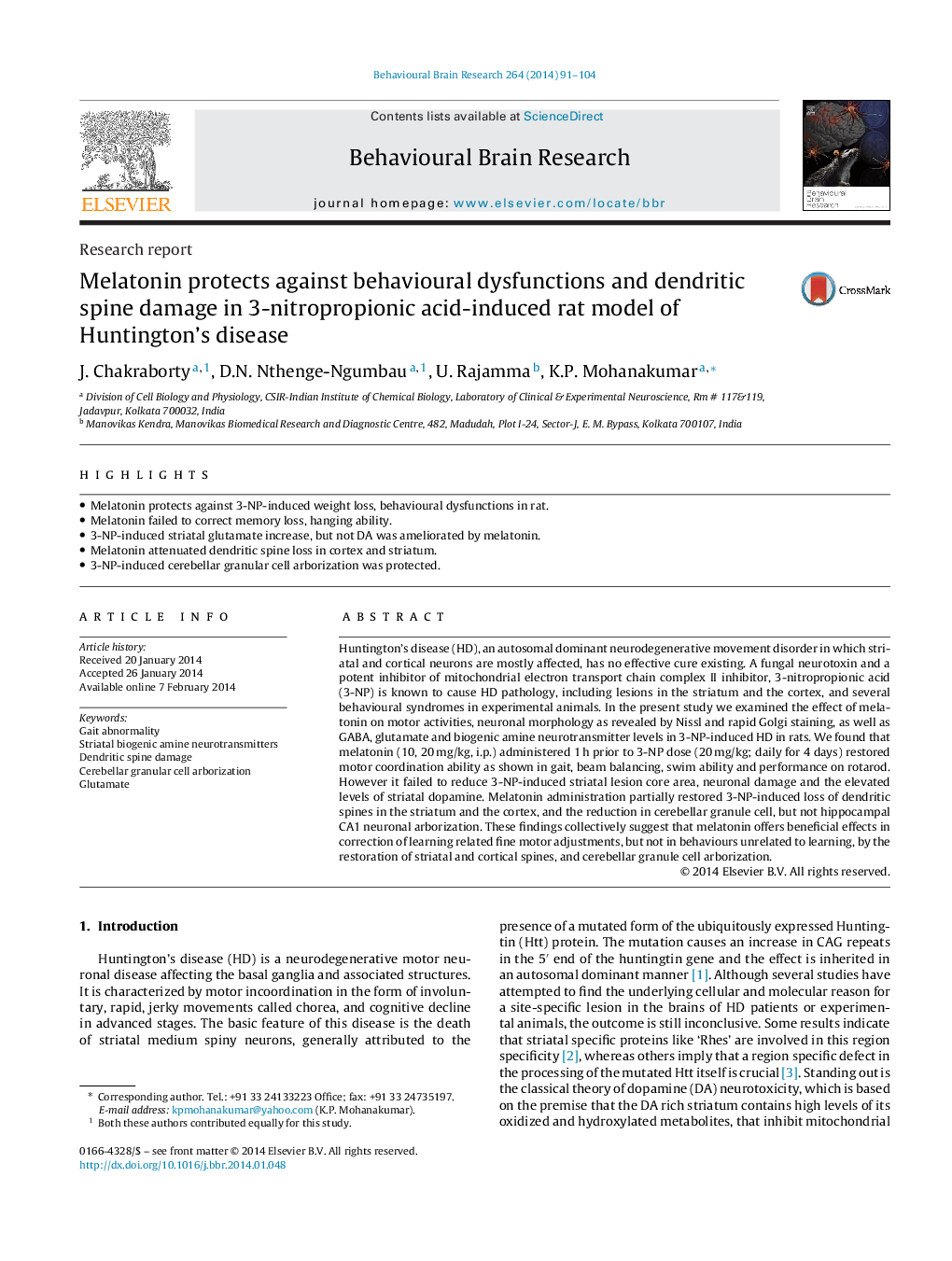| Article ID | Journal | Published Year | Pages | File Type |
|---|---|---|---|---|
| 6258252 | Behavioural Brain Research | 2014 | 14 Pages |
â¢Melatonin protects against 3-NP-induced weight loss, behavioural dysfunctions in rat.â¢Melatonin failed to correct memory loss, hanging ability.â¢3-NP-induced striatal glutamate increase, but not DA was ameliorated by melatonin.â¢Melatonin attenuated dendritic spine loss in cortex and striatum.â¢3-NP-induced cerebellar granular cell arborization was protected.
Huntington's disease (HD), an autosomal dominant neurodegenerative movement disorder in which striatal and cortical neurons are mostly affected, has no effective cure existing. A fungal neurotoxin and a potent inhibitor of mitochondrial electron transport chain complex II inhibitor, 3-nitropropionic acid (3-NP) is known to cause HD pathology, including lesions in the striatum and the cortex, and several behavioural syndromes in experimental animals. In the present study we examined the effect of melatonin on motor activities, neuronal morphology as revealed by Nissl and rapid Golgi staining, as well as GABA, glutamate and biogenic amine neurotransmitter levels in 3-NP-induced HD in rats. We found that melatonin (10, 20Â mg/kg, i.p.) administered 1Â h prior to 3-NP dose (20Â mg/kg; daily for 4 days) restored motor coordination ability as shown in gait, beam balancing, swim ability and performance on rotarod. However it failed to reduce 3-NP-induced striatal lesion core area, neuronal damage and the elevated levels of striatal dopamine. Melatonin administration partially restored 3-NP-induced loss of dendritic spines in the striatum and the cortex, and the reduction in cerebellar granule cell, but not hippocampal CA1 neuronal arborization. These findings collectively suggest that melatonin offers beneficial effects in correction of learning related fine motor adjustments, but not in behaviours unrelated to learning, by the restoration of striatal and cortical spines, and cerebellar granule cell arborization.
